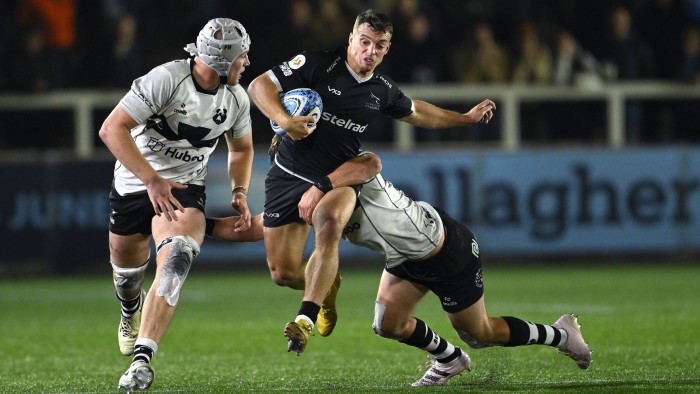Unlock the Editor’s Digest for free
Roula Khalaf, Editor of the FT, selects her favourite stories in this weekly newsletter.
Rugby union chiefs are in talks to reshape Premiership Rugby, the highest level of the men’s game in England, in an attempt to arrest the financial woes of embattled clubs and attract fresh investment to grow the sport.
Premier Rugby, co-owned by the clubs and private equity firm CVC Capital Partners, the teams themselves and the Rugby Football Union governing body are in talks about changing the governance and business model of the competition, according to people with direct knowledge of the plans.
Among the options being considered is a franchise-based system in the spirit of modern sports competitions such as the Indian Premier League, which revolutionised cricket by attracting big-money media deals and investors.
Under this proposal, new city-based teams could apply to join the Premiership, subject to meeting a range of criteria, including financial strength, business plans and geographic location.
The goal is to grow the game and recover from losses and other financial troubles that have plagued clubs for years. Three Premiership teams — London Irish, Worcester and Wasps — collapsed in 2022-23 and the competition shrank from 13 teams to 10.
The proposals, subject to negotiation and regulatory approvals, are not guaranteed a go-ahead. The Premiership and the RFU declined to comment.
According to accounting firm Leonard Curtis, seven of the 10 Premiership clubs could be classed as “balance-sheet insolvent” in 2022-23, leaving them relying on owners for funding.
CVC agreed in 2018 to invest £200mn for a 27 per cent stake in Premier Rugby, the company that runs the Premiership, but the coronavirus pandemic hit and teams used the funds to survive instead of investing in the game.
In addition, the UK’s Department for Culture, Media and Sport lent roughly £124mn to Premiership teams during the pandemic.
The proposal for a franchise system is designed to eliminate the financial uncertainty that arises in the traditional European sporting model of promotion and relegation.
In a franchise model clubs are, in effect, guaranteed a spot in the league and do not suffer demotion because of poor performances.
The hope is that more financially stable clubs would attract investors, sponsors and fans, as well as encourage long-term investment in infrastructure and talent development.
Relegation can deter potential investors, particularly those from the US, because of the financial uncertainty that arises from the possibility of dropping out of the top flight.
However, removing promotion and relegation could be controversial, particularly among clubs in the second-tier Championship. Nevertheless, people familiar with the matter said these clubs would also be considered for a revamped league.
In the Six Nations, the annual tournament contested by England, Wales, Scotland, Italy, Ireland and France, no relegation occurs.
Other sports use franchise systems such as cricket’s IPL which added two new teams to become a 10-squad league in 2022. In motor racing’s Formula 1, Cadillac will be added as a constructor from 2026 to bring the grid up to 11 teams.
In 2021, the England and Wales Cricket Board launched The Hundred, a competition with eight city-based franchises. These were the subject of a bidding war earlier this year and attracted interest from Silicon Valley chiefs, Indian billionaires and private investment firms.




